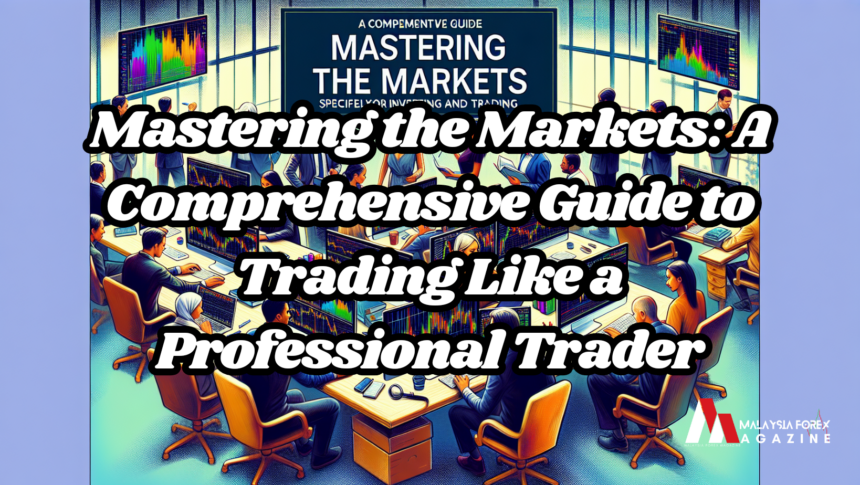Trading like a professional trader involves a combination of disciplined strategies, thorough analysis, and continuous learning. Here are key steps to help you trade like a professional:
Contents
1. Education and Research2. Develop a Trading Plan3. Use Technical and Fundamental Analysis4. Practice with a Demo Account5. Implement Discipline and Patience6. Continuous Learning and Adaptation7. Use Advanced Tools and Technology8. Network with Other Traders9. Maintain a Healthy Lifestyle10. Legal and Ethical Considerations
1. Education and Research
- Learn the Basics: Understand market terminology, trading instruments (stocks, forex, commodities, etc.), and trading platforms.
- Read Books and Articles: Invest time in reading about trading strategies, market psychology, and financial analysis.
- Follow Market News: Stay updated with financial news, economic indicators, and global events that can impact the markets.
2. Develop a Trading Plan
- Set Clear Goals: Define what you want to achieve with your trading (e.g., income, growth, risk management).
- Choose Your Trading Style: Decide whether you want to be a day trader, swing trader, or long-term investor.
- Risk Management: Determine how much capital you’re willing to risk per trade and set stop-loss levels to minimize losses.
3. Use Technical and Fundamental Analysis
- Technical Analysis: Learn to read charts and use technical indicators (e.g., Moving Averages, RSI, MACD) to identify market trends and entry/exit points.
- Fundamental Analysis: Analyze financial statements, company performance, and industry trends to assess the intrinsic value of assets.
4. Practice with a Demo Account
- Simulate Trading: Use a demo account to practice trading without risking real money. This helps you refine your strategies and build confidence.
- Track Your Performance: Keep a trading journal to record your trades, strategies used, and outcomes. Analyze your performance to identify strengths and weaknesses.
5. Implement Discipline and Patience
- Follow Your Plan: Stick to your trading plan and avoid making impulsive decisions based on emotions.
- Stay Patient: Understand that not every trade will be profitable. Focus on long-term consistency rather than short-term gains.
6. Continuous Learning and Adaptation
- Learn from Mistakes: Analyze your losing trades to understand what went wrong and how you can improve.
- Stay Updated: The financial markets are constantly evolving. Continuously educate yourself about new trading strategies, tools, and market developments.
7. Use Advanced Tools and Technology
- Trading Software: Utilize advanced trading platforms that offer real-time data, charting tools, and automated trading features.
- Algorithmic Trading: Explore algorithmic trading to automate your trading strategies based on predefined rules and algorithms.
8. Network with Other Traders
- Join Trading Communities: Participate in online forums, social media groups, and trading seminars to share insights and learn from experienced traders.
- Mentorship: Consider finding a mentor who can provide guidance, share experiences, and offer valuable feedback on your trading strategies.
9. Maintain a Healthy Lifestyle
- Manage Stress: Trading can be stressful. Practice stress management techniques such as meditation, exercise, and maintaining a work-life balance.
- Stay Focused: Ensure you are in good mental and physical health to stay sharp and make better trading decisions.
10. Legal and Ethical Considerations
- Stay Compliant: Adhere to all regulatory requirements and trading laws in your jurisdiction.
- Trade Ethically: Ensure your trading practices are ethical and do not involve market manipulation or insider trading.
By following these steps, you can develop the skills and mindset required to trade like a professional trader. Remember, trading is a journey that requires continuous improvement and adaptation to changing market conditions.











